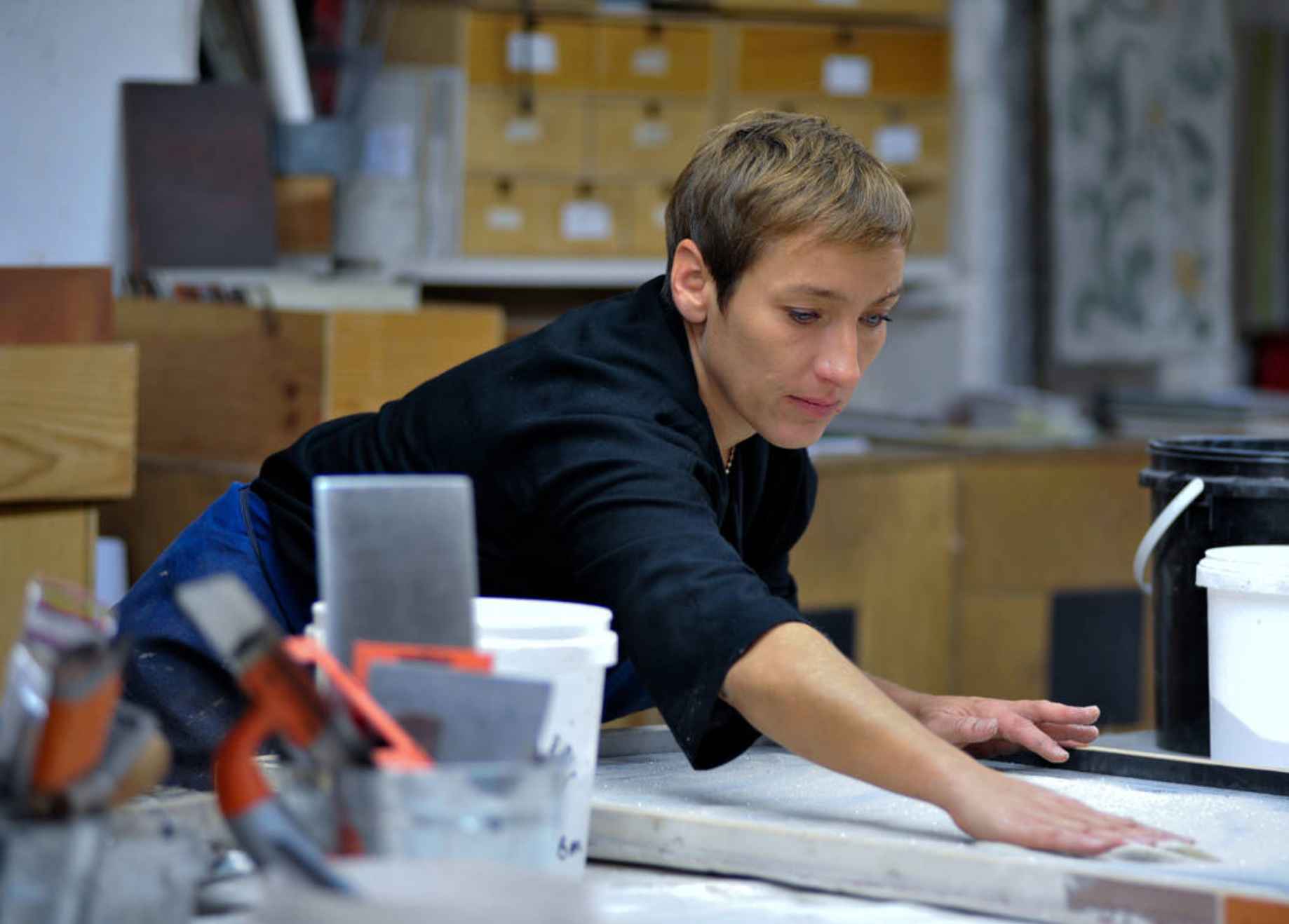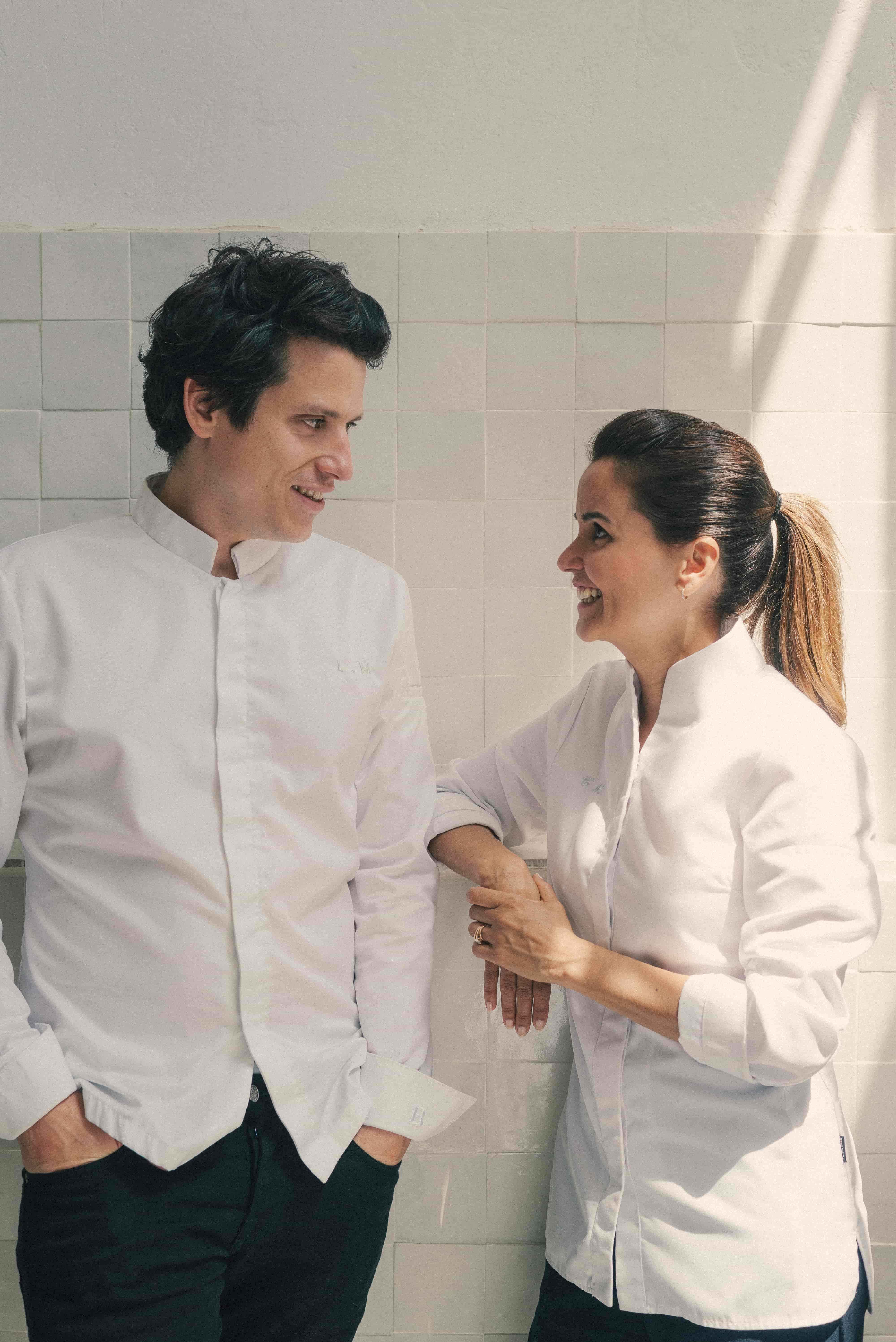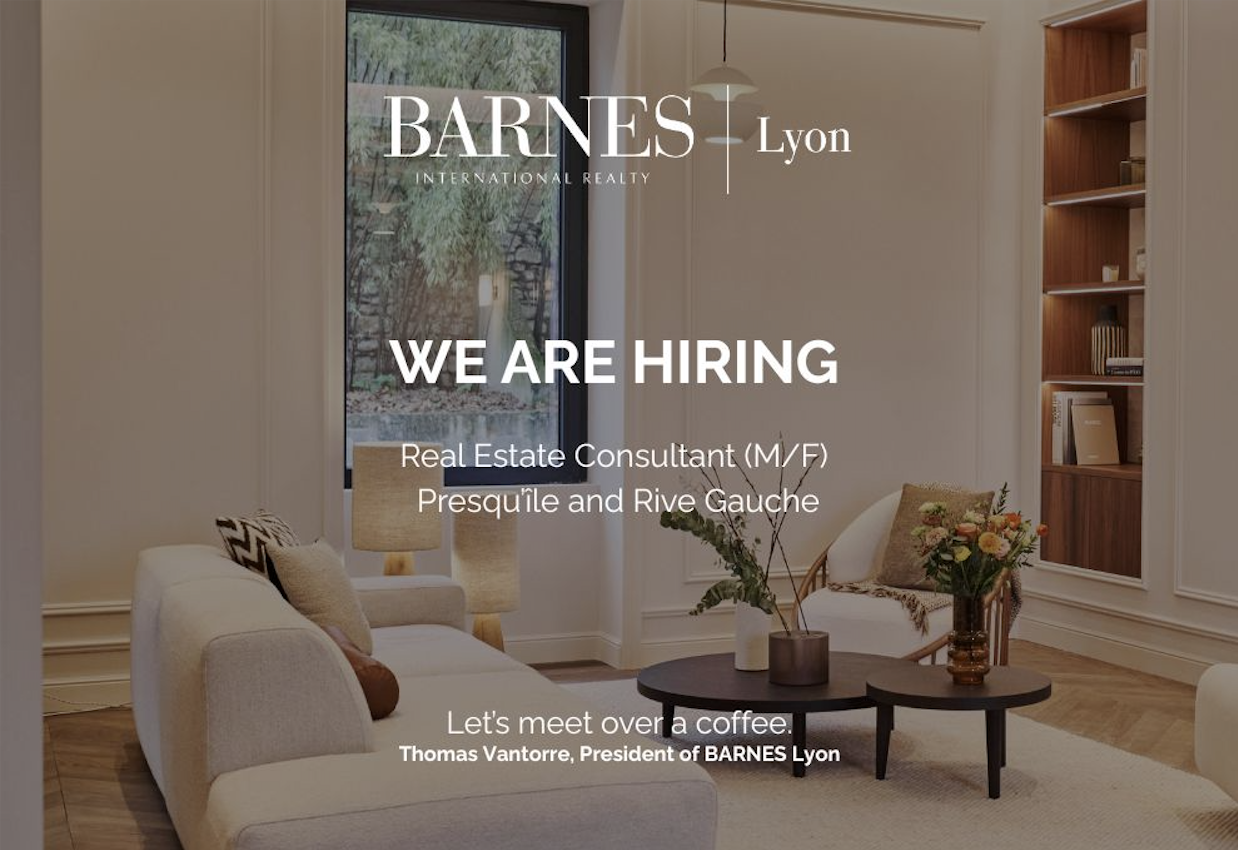2021-06-14
Meeting with Agnès Conod, a craftsman who has been specialising in natural decorative plasters for 25 years. BARNES Lyon went to meet Agnès Conod, a craftswoman who has been specialising in natural decorative plasters for 25 years. It was in the heart of the Croix-Rousse, in her workshop, that she welcomed us to talk about the very essence of her work. A meeting as instinctive as it was instructive.
BARNES Lyon went to meet Agnès Conod, a craftswoman who has been specialising in natural decorative plasters for 25 years. It was in the heart of the Croix-Rousse, in her workshop, that she welcomed us to talk about the very essence of her work. A meeting as instinctive as it was instructive.

What are the pillars of your profession and where does this passion come from?
I offer my clients wall decorations created from natural and simple materials like sand, water and lime. The main idea is to mix these materials, to make my own colours in order to offer my clients unique custom-made decoration elements.
The particularity of my work is to use only lime, sand and water with some variations, notably colour pigments that come from all over the world. My role is to offer them alternatives to plastering/painting and tapestry.
Why did you choose the Croix-Rousse to set up your workshop?
I've been in the Croix-Rousse for over 20 years. I have the chance to move around a lot and travel with my job, but I have kept a special attachment to the Croix-Rousse because it is the place where I was born. I have never grown tired of it. I love this district, where my roots are anchored, and I can't see myself leaving it.
How did you get here?
I've been around a long time, as I'm already 51 years old (laughs). Generally speaking, I've always liked drawing and I've always been attracted to the plastic arts. After a general baccalaureate which I didn't particularly like, I entered a school of applied arts. I then entered the Beaux Arts before taking a CAP specialising in plastering/painting with a decorating option. Finally, my career path ended with training in traditional masonry.
So I went from higher education courses to much more concrete and specialised studies. This is what has enabled me to find this balance today.
What skills are essential for your job?
You have to be flexible, because you don't decide everything in this job. It's a real life lesson. You also have to like the nomadic life, even a bit of a roots life (laughs) in the sense that you're always working with your hands, while travelling a lot between different sites. You also have to be sporty.
In the end, you could say that this job is similar to hiking. You prepare your itinerary, you leave, then there's a storm and you have to change your plan. You always have to adapt.
This job also requires a lot of preparation.

It's a bit like a comedian or an improviser who prepares before his show. There are a lot of little tests to make sure that everything works. And once you get going, it's very spontaneous and raw. There's no turning back, because there's only so much time to work.
Who do you make these works for?
For professionals (mainly architects) and individuals. What I prefer is the exchange that takes place before the work is done. These exchanges are a source of many ideas and increase my creativity tenfold. We live a real adventure with them. We think about their project together, and I draw on their environment, their personality and their desires. It's a tailor-made job, so there are several stages of creation that follow on from each other and feed off each other; it's the facet of my work that I prefer.
I love it when the project is born. I love talking to my clients and I like to see that my job makes them dream and makes them feel good. This is a real driving force for me.
I also love the tests in the workshop, alone, without pressure, where all my ideas come to life.
Of course, there are aspects I don't like as much, like carrying heavy loads. Even though I come from a family of sportsmen, it's still very difficult on a daily basis. Lime also tends to irritate the hands and respiratory tract.
Do you have a typical day?
Not really. I change locations every two weeks, moving from intimate, quiet places to noisier ones where I can talk. Hence the fact that I have to be flexible in this job. No two days are alike. You're always renewing yourself, because the materials I use offer endless possibilities.
What surprises your customers the most about your job?
Often, when customers visit the workshop, they are surprised by the "hidden side of the iceberg". They don't realise that it's a very physical job that requires strength and a lot of time beforehand.
What are your sources of inspiration?
The first and I think the main one is the relationship with the mountains. I have a mountaineer father and I grew up in this environment. As a child, I was always in contact with the rock and the earth. This is what has shaped my relationship with the material today.
In general, the art world also inspires me a lot. I have practised other arts such as theatre, contemporary dance and music which inspire me a lot on a daily basis. This inspiration is inexhaustible with everything that surrounds us. For me, without art there is no life. I love all the arts, it is part of me. I don't define myself as an artist. An artist will work without needing a medium. I have an artistic purpose in my work but I always adapt to the demand. I need to be inspired by the space and the people in order to make a tailor-made work. There is creativity and an artistic approach but I remain a craftsman. I want to do things for my clients, to make their "world beautiful". This is where the name of my workshop "Le monde est beau" comes from.
Meet Agnès in her workshop in the heart of the Croix-Rousse:
Le Monde est Beau
4, place Bertone
%20Maxime%20Cordier.jpg)


